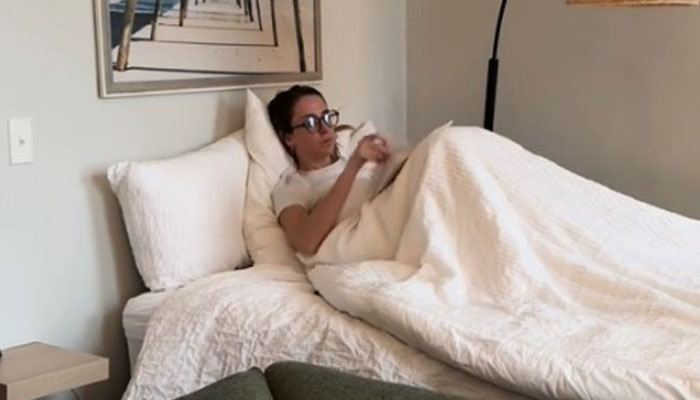VIDEO: What's this new Tiktok trend 'Hurkle-Durkle' about?
"So no, I'm not being lazy or wasting my life. I'm practicing an ancestral right of passage. I'm connecting with my culture and heritage," a user wrote
A new term, "Hurkle-Durkle", has taken the internet by storm with many still unfamiliar with what exactly it means.
But, according to TikTok, you're likely already 'hurkle-durkling' yourself, and if not, you should consider getting into the habit.
The catchy term, which originated in Scotland in the 19th century, has become extremely popular on the internet because of TikTokers, who have found and appreciated its edgy connotation, Yahoo Life reported.
Hurkle-durkles are those who stay in bed later than they should by ignoring their alarm clock and skipping work or curling up beneath the blankets rather than going out with friends or making an appointment.
TikToker Kira Kosarin first used the "word of the day" on social media, helping popularise it in early January, garnering 3.9 million views.
Kosarin says in her post: "I do be hurkling, and I do be durkling, and once I’ve hurkled my last durkle in a given morning, I will get up, but I’m a big fan of a hurkle-durkle."
The term caught on immediately. Commenters were excited to have a word to fit their occasional morning lie-in, while some even shared that scrolling TikTok is a part of their own hurkle-durkle routine.
One user commented, "So no, I'm not being lazy or wasting my life. I'm practicing an ancestral right of passage. I'm connecting with my culture and heritage."
What does Hurkle-Duckle teach us?
In the long run, sleeping in on the weekends may potentially save your life, according to 2023 research that was published in the journal Sleep Health.
Particularly for those who receive less than six hours of sleep during the week, researchers discovered that getting an extra two hours of sleep on the weekends can cut the risk of a heart attack or stroke by 63%.
-
Rosie O’Donnell secretly returned to US to test safety
-
'Harry Potter' star Rupert Grint shares where he stands politically
-
Drama outside Nancy Guthrie's home unfolds described as 'circus'
-
Marco Rubio sends message of unity to Europe
-
Hilarie Burton reveals Valentine's Day plans with Jeffrey Dean Morgan
-
Jacob Elordi, Margot Robbie on 'devastating' scene in 'Wuthering Heights'
-
China to implement zero tariffs on African imports in major trade shift
-
Jack Thorne explains hidden similarities between 'Lord of the Flies' and 'Adolescence'












